Nelson Mandela’s complex bond with Britain
The South African President’s visit to Brixton in 1996 epitomised a mixed relationship with his nation's former colonial ruler
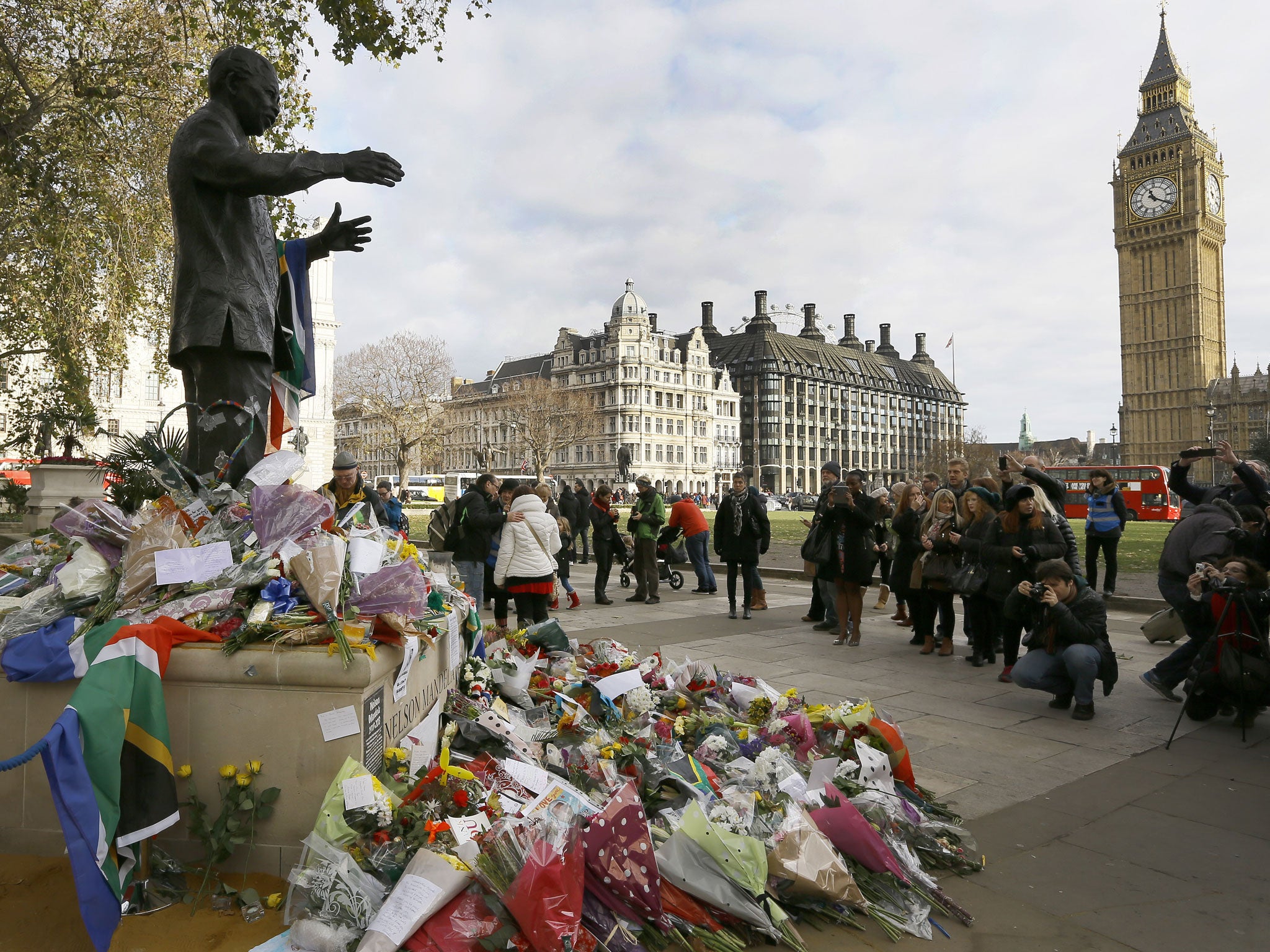
When Nelson Mandela made his first visit to Britain following his release from three decades of penury, he put Brixton at the top of the list of places he wanted to see. It was a measure of the rapture and adoration which greeted him in south London that he left a trail of his admirers’ shoes in his wake.
As MPs make the final edits to the tributes they will deliver in Parliament on Monday, many are expected to cast their minds back to that day in July 1996.
As his car pulled away from the crowds who had gathered to see the South African President on his first state visit to Britain, Mr Mandela’s vehicle was tailed towards his next appointment in Trafalgar Square by Brixton residents.
Tim Donaghy, who watched the procession after Mandela had told aides that he wanted to see the south London neighbourhood most closely identified with black Britons and the struggle for equality, said: “Everyone chased the car. There were shoes everywhere on Brixton Road because everyone lost them when they were running.
Read more:
“We were so proud he was coming to Brixton – he’s the greatest man of our lifetime. He came to Brixton for a personal thank you.”
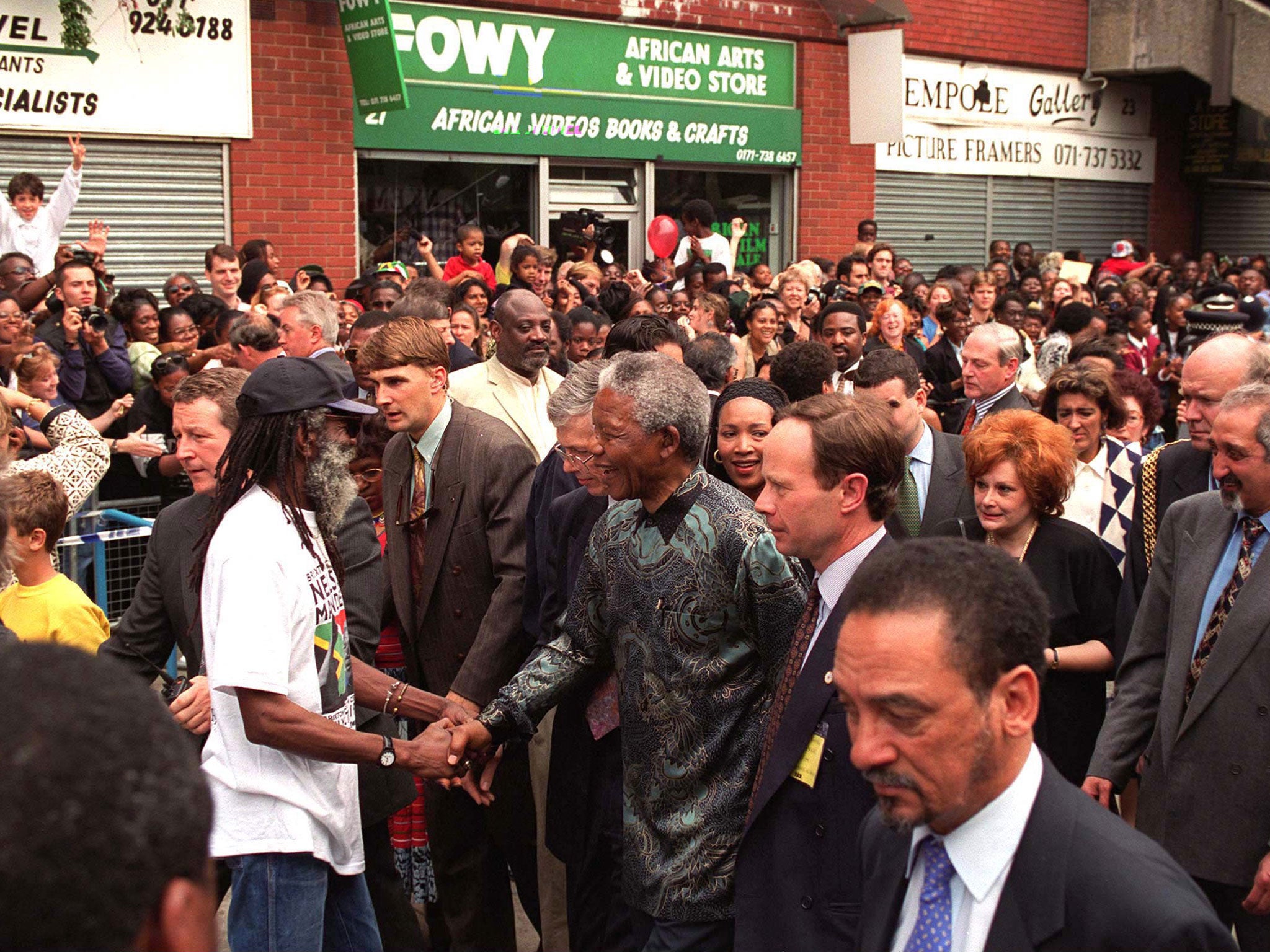
The encounter between Mr Mandela and a corner of the capital that had been scarred by its own history of racial violence but was also a key marshalling point for Britain’s anti-apartheid movement was symbolic of the complex bond established between the ANC leader and South Africa’s former colonial ruler.
From the anti-apartheid movement founded in London three years before he was imprisoned for life to the British band responsible for the anthem “Free Nelson Mandela”, Britons played an important role in coalescing global opposition to South Africa’s grotesque racist philosophy of government.
But when Margaret Thatcher branded the ANC a “typical terrorist organisation” many concluded that the British right had turned its back on the freedom struggle.
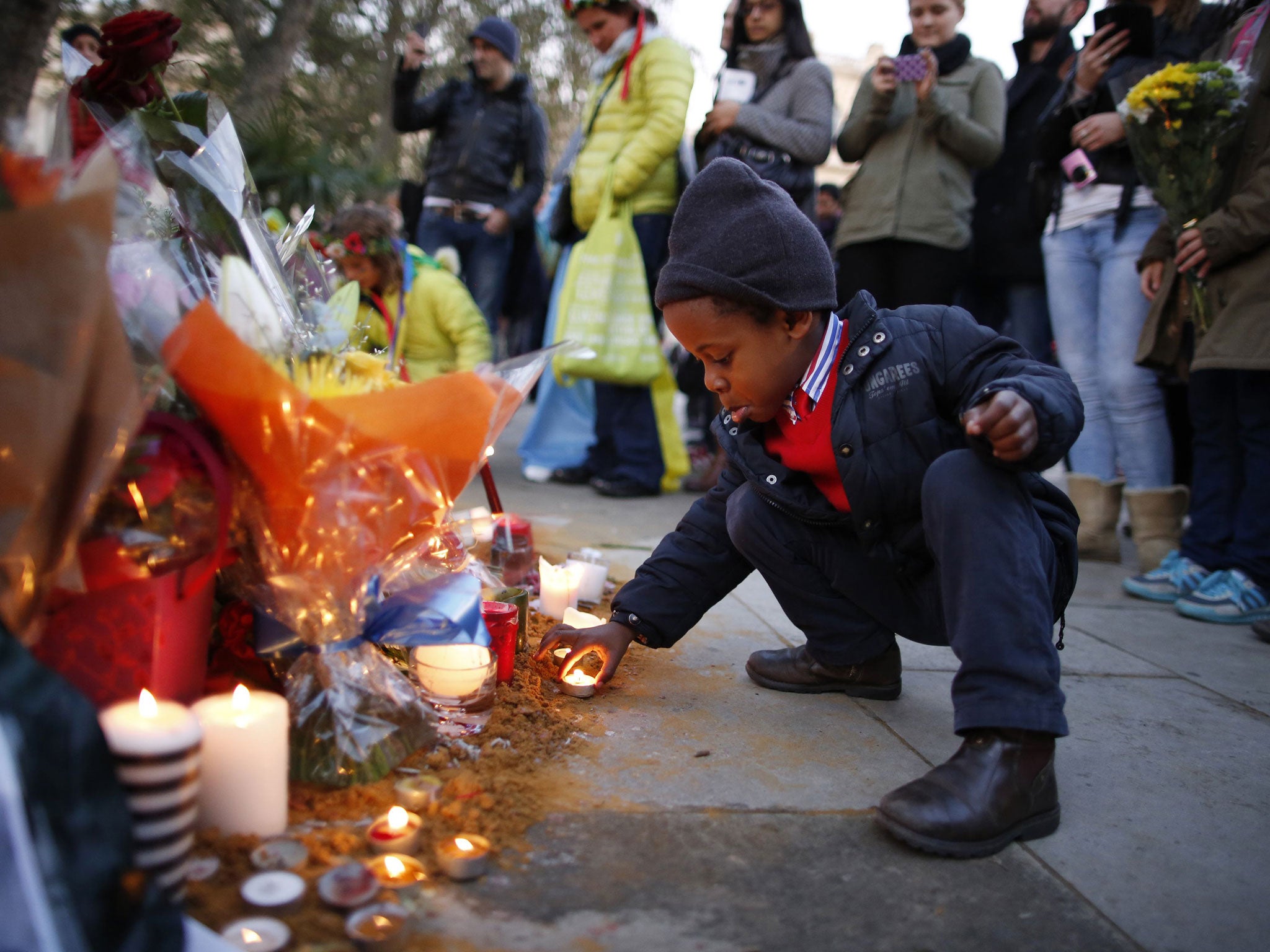
Despite this schism at the heart of British society, which also produced the so-called “rebel” cricket tours to South Africa, Mr Mandela for his part remained a committed –and healthily sceptical – anglophile for his entire life.
His affinity with English values had its roots in his education as a pupil at Healdtown, a Methodist school. His headmaster was a descendant of the Duke of Wellington who boasted of saving “the natives”. In his autobiography, Mr Mandela wrote: “The educated Englishman was our model; what we aspired to be were ‘black Englishmen’, as we were sometimes derisively called. We were taught – and believed – that the best ideas were English ideas, the best government was English government, and the best men were Englishmen.”
During a tour of African capitals in 1962 to muster support and funding for the ANC and its armed wing, Mr Mandela also flew to London and met the Labour leader Hugh Gaitskell. The young South African lawyer was pictured outside Westminster Abbey, looking skywards.
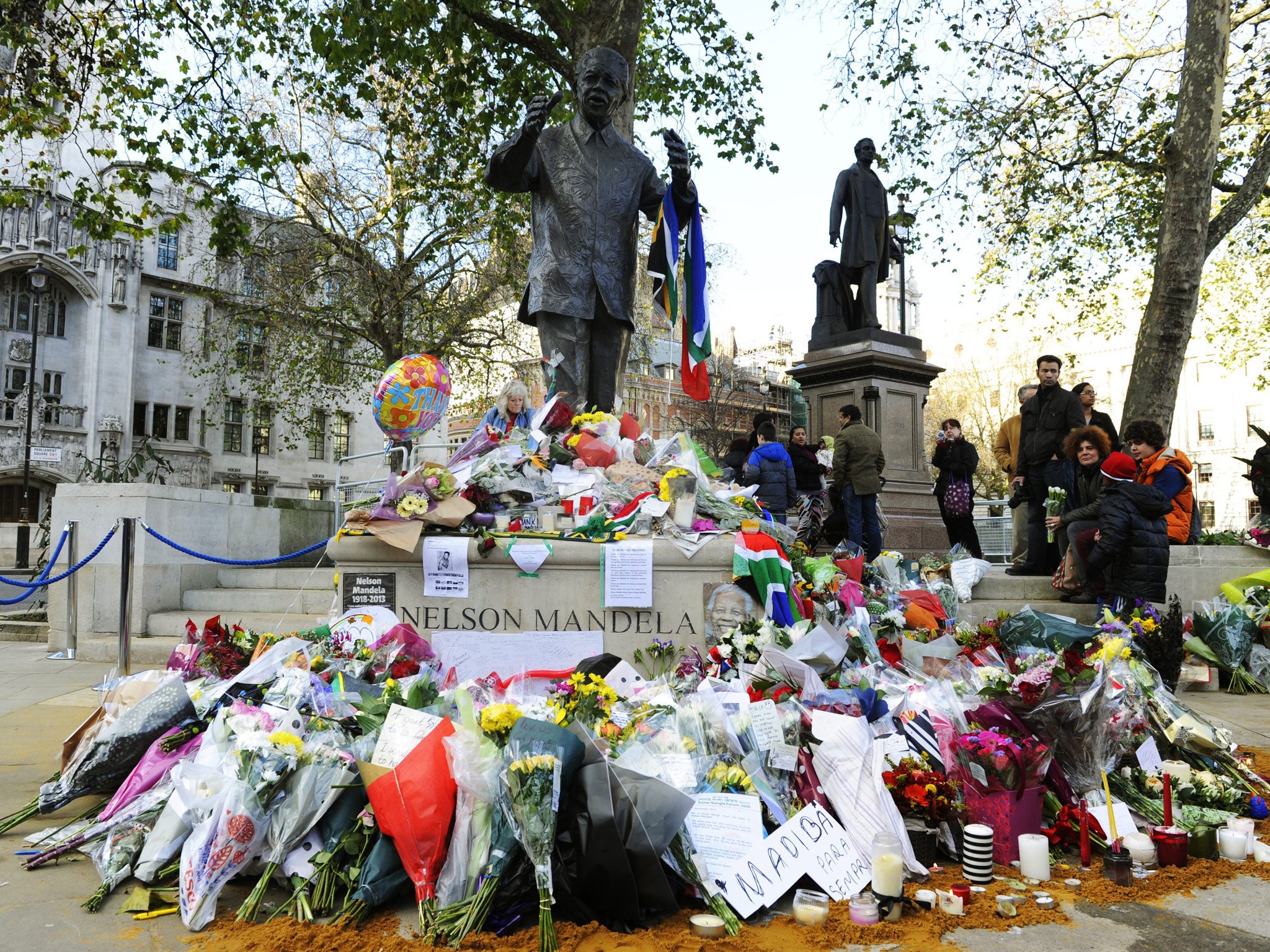
He wrote: “In London I resumed my old underground ways, not wanting word to leak back to South Africa that I was there. But I was not a recluse; my 10 days there were divided between ANC business, seeing old friends and occasional jaunts as a conventional tourist.”
As he began a life sentence on Robben Island shortly afterwards and his name became forgotten for the best part of a decade, London became an important beachhead for efforts to demolish the apartheid regime. Oliver Tambo, the ANC president and close friend of Mr Mandela who led the movement outside the steel bars of Robben Island, lived in exile in Muswell Hill, Haringey, in a house which became a magnet for anti-apartheid campaigners. The list of London-based activists included, to name but a few, Labour politicians Barbara Castle, Peter Hain and Frank Dobson, as well as the playwright Harold Pinter and the Anglican cleric Trevor Huddleston.
The success of the movement in turning the name of Mandela into a byword for a struggle against political oppression spawned a vast number of student unions, council buildings and streets named in his honour.
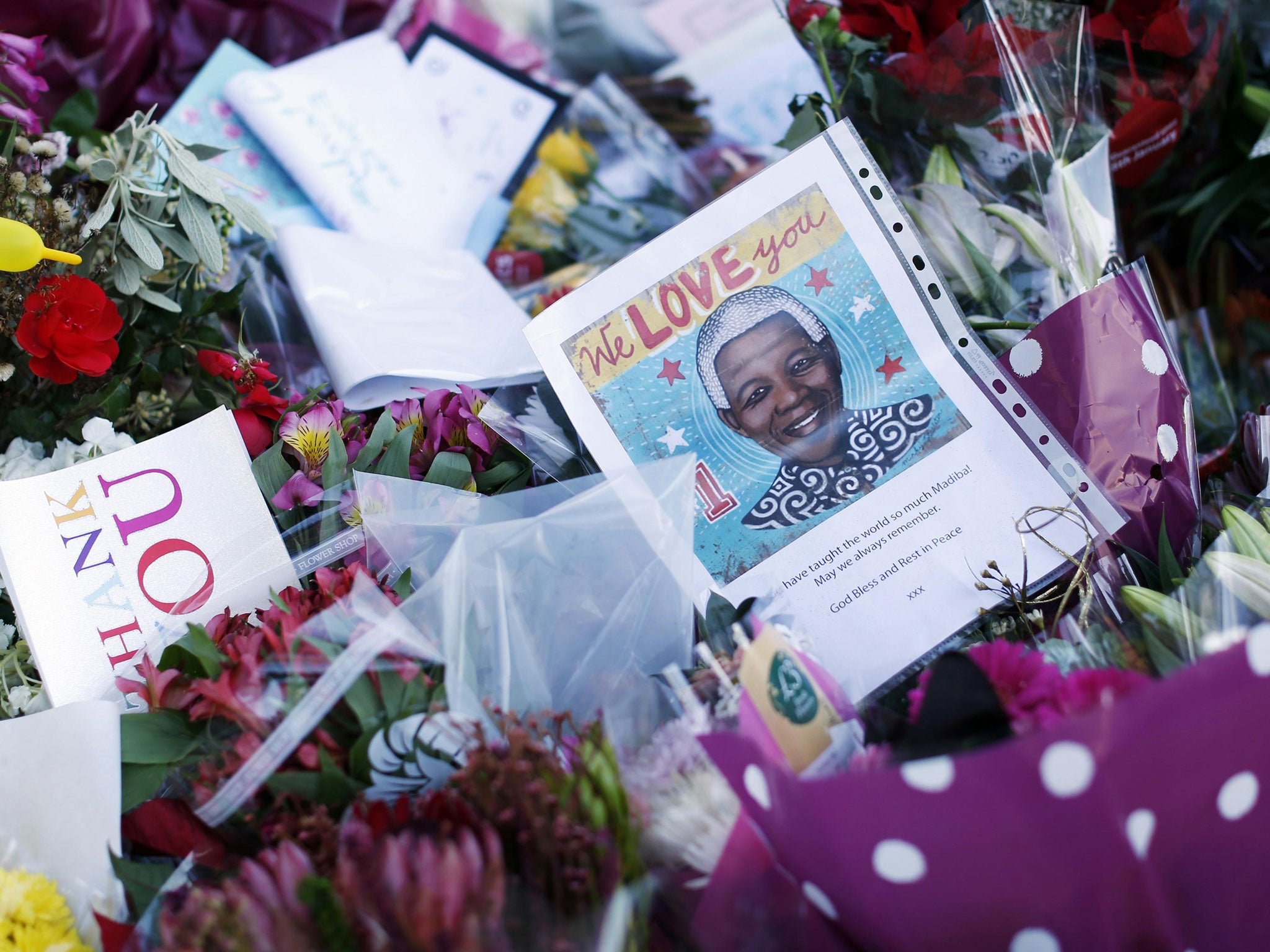
It also produced a succession of concerts including the famous 1988 performance at Wembley to mark his 70th birthday at which the song by The Specials – “Free Nelson Mandela” – cemented its place as the political anthem of a generation.
The result, along with a banking and commercial boycott implemented, at least in part, from the City of London, was an affinity between Britain and the anti-apartheid movement, and Nelson Mandela in particular.
His visit to Brixton was organised with a few days’ notice. The estimated 10,000 people who attended described a day of epochal anticipation.
From the steadfast opposition of Mrs Thatcher to economic sanctions to the colonial legacy which provided the foundations for apartheid, Mr Mandela may have had good reason to cool his ardour for Britain.
True to his spirit, however, he betrayed no ill-feeling. Addressing a crowd in Trafalgar Square from South Africa House in 1996, Mr Mandela said: “I love each and every one of you. I would like to put each and every one of you in my pocket and return with you to South Africa.”
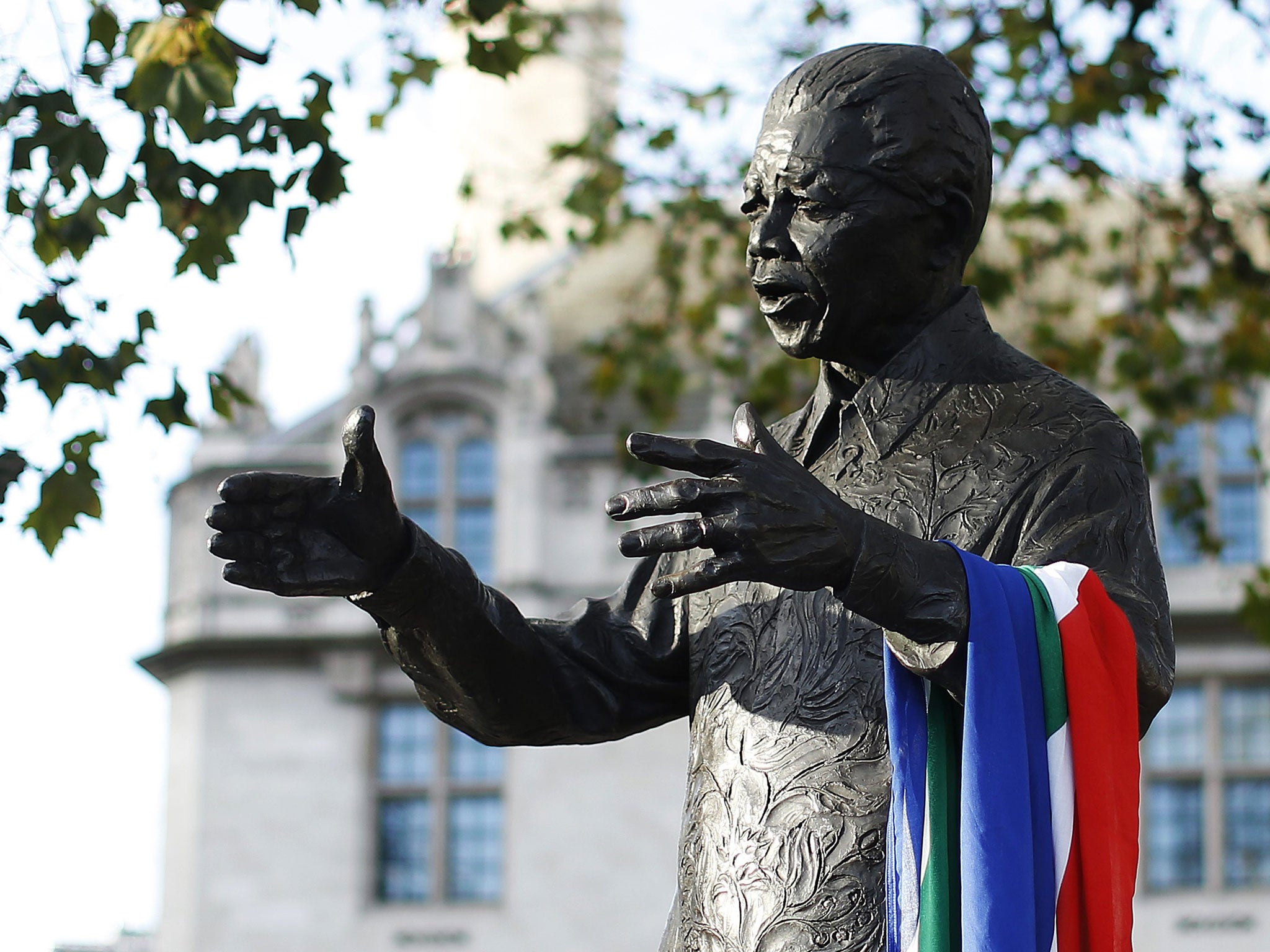
Join our commenting forum
Join thought-provoking conversations, follow other Independent readers and see their replies
Comments
Bookmark popover
Removed from bookmarks